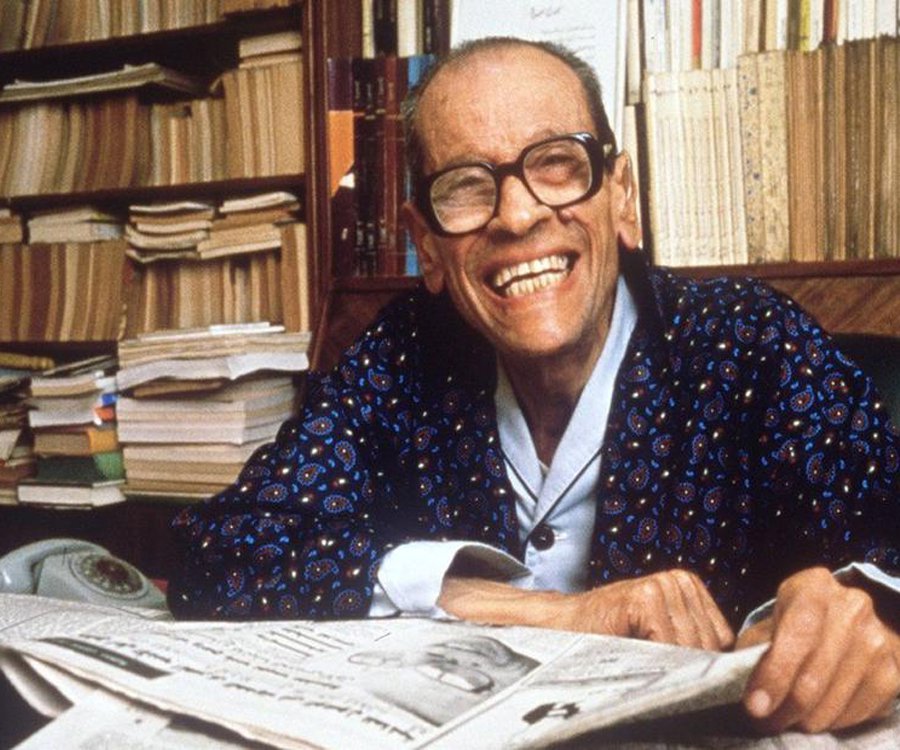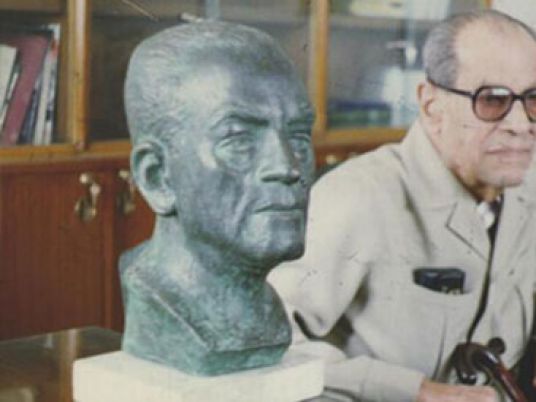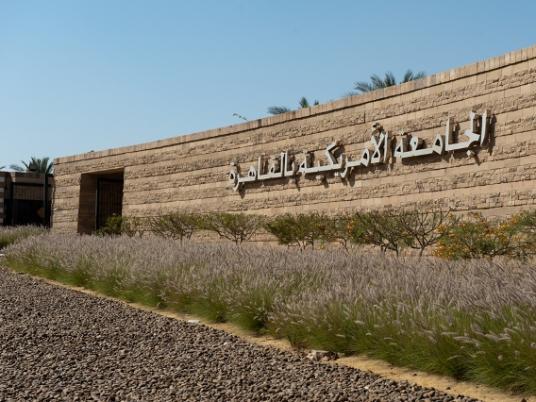On Saturday, 11 December—the date of Naguib Mahfouz’s would-be 99th birthday—writers, publishers, critics, and translators braved sandstorms and rain to commemorate the Nobel laureate by attending the 2010 Naguib Mahfouz Medal presentation ceremony at the American University in Cairo’s (AUC) downtown campus.
The award and its recipient were not one of the better-kept secrets in the Egyptian literary world. As AUC Press Director Mark Linz acknowledged in his opening remarks, many in the audience already knew the medal was destined for Miral al-Tahawy and her novel "Brooklyn Heights."
The prize truly marked the great strides al-Tahawy has made throughout her career: From a young girl in Sharqiya whose mother said “this translation thing is the last thing we need!” to an award-winning novelist of international standing.
Al-Tahawy was born to a Bedouin family in the Egyptian Delta region in 1968. In her acceptance remarks, she talked about when her first book, "The Tent," was being translated into English by Anthony Calderbank, her brothers answered Calderbank’s questions on her behalf.
“I would stand behind the door and eavesdrop on my own stories that were being reinvented,” al-Tahawy told the audience.
Now, three of al-Tahawy’s novels have been translated into multiple languages: "The Tent," "Gazelle Tracks," and "Blue Aubergine." It was after their translation, al-Tahawy said, that she left her father’s house. Eventually, she moved to New York City, where she earned a post-doctoral degree from New York University and was inspired to write her 2010 novel, "Brooklyn Heights."
Al-Tahawy’s earlier novels have been critically acclaimed. But "Brooklyn Heights" has brought the author to the doorstep of two major literary prizes.
It was 9 December when al-Tahawy received word that "Brooklyn Heights" had made the six-book shortlist for the International Prize for Arabic Fiction, popularly known as the “Arabic Booker.” Two days later, she accepted the Naguib Mahfouz medal for the same novel from AUC president David D. Arnold.
Before the presentation of the award, award judge Dr. Gaber Asfour delivered the 2010 Mahfouz memorial lecture. He noted that, in honor of Mahfouz’s coming centennial, “for the whole coming year, we have conferences, celebrations…to feel the extraordinary work of Naguib Mahfouz.”
Asfour spoke of Mahfouz’s role in the birth of the Arabic novel, and compared the “sixties” generation of authors to the up-and-coming “nineties” generation.
Al-Tahawy, in her acceptance speech, also talked about her relationship to Mahfouz, the man she called her literary father.
“I never met Naguib Mahfouz, but, like all writers of my generation, we knew him, and we are part of him as children always are,” al-Tahawy said.
Dr. Samia Mehrez, another award judge, further linked al-Tahawy’s work with the literary icon. Dr. Mehrez said that, like Mahfouz, “al-Tahawy thoroughly understands that writing is linked to a specific place, because place implies time, history, society, and human relations.” Mahfouz’s works were anchored in old Cairo, Mehrez said, while “al-Tahawy situates her text between two places that initially seem radically distant and different.”
The places do not, however, turn out to be so radically different. Dr. Asfour said of "Brooklyn Heights" that “…the world of the margins it depicts in the United States emerges as parallel to that of their likes at home.”
There have been 17 Naguib Mahfouz medal winners since the award was established in 1996. One of them, Amina Zaydan, was also mentioned during the ceremony. Her "Red Wine" went to store shelves in English this month via AUC Press.
The silver Mahfouz medal, presented each year on the Nobel laureate’s birthday, comes with a cash prize of US$1000 and a translation into English. The English version of "Brooklyn Heights" is currently scheduled for a 2011 release, although AUC Press editor Neil Hewison said the publishing house is still in search of the right translator.



